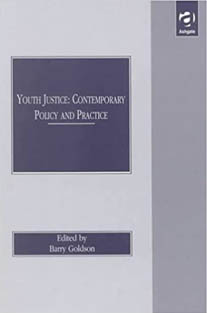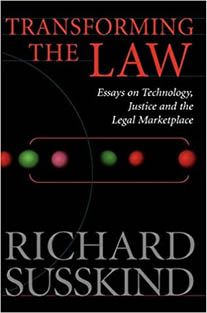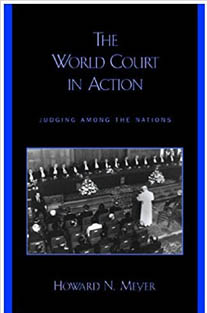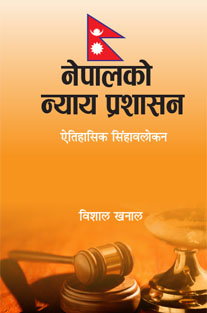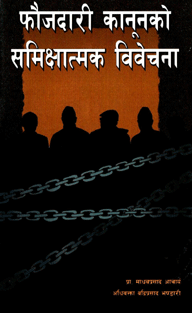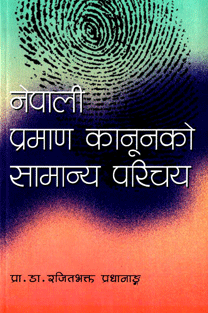The World Court in Action
₨ 7,500.00
Provide[s] a good overview of the history of the formation and ongoing work of the World Court, and addresses the underlying need for institutions like it and its more recent international criminal successors. I would recommend it for any law school library. — Charlotte Bynum, Tulane University Law Library ― International Journal Of Legal Information
Howard Meyer obviously believes that the World Court and international law are institutions that demand our respect. Yet his accessible and well-written work belies no anger and remains a balanced, well-presented brief on behalf of a unique American―or New York―movement that set out to solve the world’s problems and to a great degree succeeded in changing world history, despite recent setbacks. Mr. Meyer’s is a voice of hope and optimism firmly grounded in reality. ― New York Law Journal
Howard N. Meyer should be far better know to the American public. He is a leading authority on the Rule of Law in international affairs, as his The World Court in Action: Judging Among the Nations attests. ― Jewish Peace Fellowship Newsletter
The World Court in Actionis essential―and enjoyable―reading for anyone concerned about the future of the International Court of Justice and a global rule-of-law system.
Meyer’s book is a rare gem from a knowledgeable author willing to help readers understand the history of the World Court and the United States’ contribution to it. He succeeds in this ambitious task and the result is both readable and engaging. ― Santa Clara Law Review
The end of the Cold War made it possible for the U.S. to lead the world in returning to wholehearted acceptance of the peace-serving principles of the Law of Nations. Our leadership in this is essential to enable the World Court to play its full part in establishing peace under Law, as its founders had contemplated and fondly hoped. To this end it is critical to eliminate public ignorance about the Court and its history. To meet that need this book can make an important contribution. — Fr. Theodore M. Hesburgh, C.S.C., from the Foreword, president emeritus of Notre Dame University
The principal value of the book lies in its simple introduction to numerous cases that have come before the PCIJ and the ICJ. Thus, for the novice who does not know the difference between international and national law or between the PCIJ and the ICJ this book provides a valuable introduction. It also relates the work of the World Court to events that we all inevitably have read about in the national papers at some time or another. This is valuable for both nonlawyers and for most lawyers, especially American lawyers, for whom the World Court is a distant dream that has little to do with reality. ― Peace & Change
This book fills an important knowledge gap about the International Court of Justice (ICJ), especially now, as the debate about U.S. involvement with its ‘sister’ court – the International Criminal Court – rages on. The book is accessible without skimping on the essential historical and legal details that make the story of the International Court of Justice so fascinating. Meyer offers a model of advocacy for international institutions like the World Court which both teachers and students of social studies will find compelling. ― Social Education
Description
Provide[s] a good overview of the history of the formation and ongoing work of the World Court, and addresses the underlying need for institutions like it and its more recent international criminal successors. I would recommend it for any law school library. — Charlotte Bynum, Tulane University Law Library ― International Journal Of Legal Information
Howard Meyer obviously believes that the World Court and international law are institutions that demand our respect. Yet his accessible and well-written work belies no anger and remains a balanced, well-presented brief on behalf of a unique American―or New York―movement that set out to solve the world’s problems and to a great degree succeeded in changing world history, despite recent setbacks. Mr. Meyer’s is a voice of hope and optimism firmly grounded in reality. ― New York Law Journal
Howard N. Meyer should be far better know to the American public. He is a leading authority on the Rule of Law in international affairs, as his The World Court in Action: Judging Among the Nations attests. ― Jewish Peace Fellowship Newsletter
The World Court in Actionis essential―and enjoyable―reading for anyone concerned about the future of the International Court of Justice and a global rule-of-law system.
Meyer’s book is a rare gem from a knowledgeable author willing to help readers understand the history of the World Court and the United States’ contribution to it. He succeeds in this ambitious task and the result is both readable and engaging. ― Santa Clara Law Review
The end of the Cold War made it possible for the U.S. to lead the world in returning to wholehearted acceptance of the peace-serving principles of the Law of Nations. Our leadership in this is essential to enable the World Court to play its full part in establishing peace under Law, as its founders had contemplated and fondly hoped. To this end it is critical to eliminate public ignorance about the Court and its history. To meet that need this book can make an important contribution. — Fr. Theodore M. Hesburgh, C.S.C., from the Foreword, president emeritus of Notre Dame University
The principal value of the book lies in its simple introduction to numerous cases that have come before the PCIJ and the ICJ. Thus, for the novice who does not know the difference between international and national law or between the PCIJ and the ICJ this book provides a valuable introduction. It also relates the work of the World Court to events that we all inevitably have read about in the national papers at some time or another. This is valuable for both nonlawyers and for most lawyers, especially American lawyers, for whom the World Court is a distant dream that has little to do with reality. ― Peace & Change
This book fills an important knowledge gap about the International Court of Justice (ICJ), especially now, as the debate about U.S. involvement with its ‘sister’ court – the International Criminal Court – rages on. The book is accessible without skimping on the essential historical and legal details that make the story of the International Court of Justice so fascinating. Meyer offers a model of advocacy for international institutions like the World Court which both teachers and students of social studies will find compelling. ― Social Education
Additional information
| Authors | Howard N Meyer |
|---|---|
| Cover-Types | Hardcover |
| ISBN/ISSN | 9780742509245 |
| Language | English, Rowman & Littleheld |
| Pages | 309 |
| Year of Publication | 2002 A.D |

